Whether it’s knocking around in the garage or claiming center stage at the Olympics, table tennis has become a worldwide sensation. Although it may not be as widely televised as some other competitive sports, for those who play, it’s nothing less than a lifestyle.
But table tennis isn’t the only niche sport Asheville has to offer. Josh O’Conner, Buncombe County’s parks and recreation manager, says his department works with a number of clubs, including rowing groups, a sailing club and a disc golf association.
“Small club sports, especially those that are somewhat fringe, are really something we’re trying to pay attention to,” he explains. “We’re looking at ways we can leverage our impact by supporting amateur sports that have a low cost of entry and that engage people who haven’t been involved in traditional athletics. We do what we can to support the clubs with field space or seed grants because, ultimately, it allows us to achieve our efforts toward health through active lifestyle.”
Organized sports aren’t for everyone, however, and there are other ways Ashevilleans can find community while getting physical (see sidebar, “Getting Rhythm”). Either way, those goals are important in creating and supporting a sustainable community in Asheville.
The various local clubs, notes O’Conner, also offer community members alternatives to what they may have experienced as kids. “A lot of people have had negative sports experiences during childhood, so beyond childhood we see very little interest in traditional sports.”
Up and down
Growing up in Japan, Kyoko Muecke was surrounded by table tennis. She was 13 when she joined a club, though she spent her first year picking up balls and performing various other subsidiary tasks. And when she played in her first tournament at age 14, she was terrified.
“When my turn came, I was standing in front of the table — and then, to my eyes, the table started going up and down, up and down, because I was so nervous,” the retired Asheville resident recalls. “So you can tell how miserably I was beaten.”
After that, Muecke and table tennis parted ways. She moved to California in 1980 and to Asheville in 2001. But it wasn’t till she stumbled on the Asheville Table Tennis Club two years ago that her love for the sport was rekindled. In 2015, she was reading a newspaper article about the group and “Something happened in my heart, like a joy just spreaded in my heart. I didn’t understand why I had such a joy.”
The next day, she joined up. “I wanted to overcome my fear. I wanted to beat myself. I wanted to go to a tournament someday and then see if the table stays.” Muecke got her chance last year: She competed in a senior tournament in Charlotte, winning a silver medal. Soon after, though, she fell and was diagnosed with arthritis. After that, she just sat in front of the TV, watching tournament players and missing the sport.
But when club President Jeremy Rabuck encouraged her to come back, Muecke realized she could reconnect in other ways. Her doctors said she couldn’t play for another six months, so she now helps run a serving robot people can use to hone their skills and tries to encourage new members. Just watching everyone play, says Muecke, makes her feel better.
Rabuck, an agent at Carolina Green Realty, says the club prides itself on making people of all ages and backgrounds feel welcome. “It’s such a good club: I feel like we’re all president.” The group, he maintains, also boasts the nicest facility in the state.
Movement and fitness
Another racket sport that’s seemingly taken Asheville by storm is pickleball. Local players come together weekly at several locations, including the YMCA, the Stephens-Lee Center and the Linwood Crump Shiloh Center. And on Sundays, the Y is so packed that people have to take turns. Last month, the Recreation Advisory Board recommended a 10-court pickleball facility at Oakley Park.
Although the sport’s been around since 1965, it’s stayed somewhat under the radar. Supposedly, one of the inventors of the game had a dog named “Pickles,” but Asheville native Joanna Nache traces the name to “pickling,” a term rowers use to describe their teamwork. Pickleball teams, notes Nache, work together in a similar way.
The sport also builds community. “It’s very social,” she says. “You know, some people live at home alone, and they come here because they get to see people. It’s the camaraderie.”
For those looking to compete in tournaments, the WNC Pickleball Club accepts referrals from current members.
PJ Dillingham has only been playing since January, but she’s already hooked. She says “PJ” used to be a short form of her given name, Pamela Jean, but now it stands for “pickleball junkie.” Dillingham, a nurse practitioner at Mission Health, touts the sport’s health and social benefits. “It’s not just the sport piece of it: It’s like this whole social interaction, because you’re playing with a different set of people each time. You’re exercising, you get the positive endorphins, and … you can have generations competitively playing on the same court. To me, that makes it one of the most unique opportunities for movement and fitness that there is.”
Easy to learn, hard to master
Those kinds of social and personal benefits are also part of disc golf’s appeal. John Garcia played his first round when some of his employees took him out about two years ago. He’s now president of the WNC Disc Golf Association. Garcia, who co-owns Lookout Brewing Co. in Black Mountain, says he likes the sport because folks of all shapes and sizes can easily play. “You don’t have to have a LeBron James build to be good at a technique and a follow-through that will put a disc 400 or 500 feet down the airway.”
Unlike more traditional sports, he continues, disc golfers can progress pretty quickly. “I can go out and play basketball and have fun, but I’m really not going to be that good. And if I play for two or three more months, I still might not be that good.” Play four or five rounds of disc golf, on the other hand, and “from your first round to your fifth there’s a night-and-day difference. By the time you play your 20th and your 100th round, you’re making leaps and bounds at how good you can be.”
Barrett Caton, the association’s vice president, agrees, though he stresses that honing one’s technique can take some time. Disc golf, he says, is “easy to learn, hard to master.” Whereas, “if you didn’t grow up playing baseball, soccer, basketball, it’s hard to learn that.”
And though some club members play professionally — notably Nathan Sexton, who’s currently ranked 12th in the world, according to the Professional Disc Golf Association’s website — most seem content to keep things more low-key, says Garcia. There’s often friendly competition based on “tags,” medals with a randomly assigned number from one to 100 that are given to all club members. Whoever wins the round gets to swap tags with the person who lost, and the goal is to end up with the lowest possible number. At the end of the year, those with numbers 1 through 16 get to keep whichever number they finished with.
And because it’s such an easy sport to pick up, disc golf connects people to a broader community, notes Caton. “I’ve played courses all over the country, all over the world now, and in every place, I’ve never played a round by myself unless I wanted to.”
Beyond rules
Both the table tennis club and the disc golf association are 501(c)(3) nonprofits, but not all local sports groups have that status. Allison Taylor, who works at City Bakery, says Asheville’s hard-court bike polo group has been searching for a home and some kind of official recognition for a while now. Group members ride with mallets in hand, typically playing 15-minute, two-on-two matches in various tennis courts around town. The sport, she says, got its start in Seattle, with bike messengers playing in between shifts.
The local group, notes Taylor, was asked to leave a location where members had been playing for some time.
“I think people are up in arms about it because it says ‘tennis court’ and ‘no bikes.’ It’s not allowed just because we’re breaking the rules, even though we’re taking eight to 10 people off the couch and into the open, playing an organized sport, getting physical activity, bettering mental awareness and meeting up with people,” she points out. “We have a positive impact on the community. We want people to play with us; we each have a life and a job and other fulfilling aspects. We come together as a whole to experience this, and I don’t see why a couple of broken rules matter in the grand scheme of things.”
The group’s struggles to find a consistent meeting place haven’t stopped players from having a good time, however. At a typical meetup, there’ll be music playing through somebody’s speakers, snacks being passed around and folks taking turns on the court. Local matches, says Taylor, are much more laid-back than what you’d find in other parts of the country.
Still, the sport has an unwritten rule that’s honored throughout the worldwide “polo-verse,” notes Joel Crandall, one of the Asheville group’s longest-running members.
“We all realize that it’s such a small sport that we gotta look out for each other,” says Crandall, who’s the bar manager at Timo’s House. “So when you travel to other cities, there’s usually open spaces, open food, open beds to crash in. It’s the community of polo players across the world that, before you even meet them, you know you’ll be friends.”
Zak Ingvoldstad, a Milwaukee native is living proof of this polo-verse. He was passing through town while the group was holding one of its “Newbie Nights,” a time when people are encouraged to try out bike polo. “I was on a motorcycle trip, and I was eating dinner in the park, and Allison and Stu showed up in the park with what I recognized as polo bikes,” Ingvoldstad said. “I was like, ‘Are you guys doing polo?’ and it was ‘Newbie Night,’ they were like, ‘Yeah, we got loaners, you should stick around and play,’ and I did. Joel let me stay at his place for like a week while I got on my feet, then I got a place, and here I am.”
Unlike members of the WNC Disc Golf Association, group member Allison Taylor said she didn’t think there was much different between more traditional sports and smaller sport groups, other than that they seem to fit a certain niche. “I don’t think there’s much of a difference,” she explained. “I think they’re all things that get people out of the house, talking to different members of the community that they may not have been friends with, unless this common bond brought them together. I think they all employ hand-eye coordination, skills and abilities. I think the main difference is the fact that, maybe at times, people don’t take any of us very seriously because we’re not on like ESPN.”
And it’s this common bond, a camaraderie of some sort, that seems to hold each group together.



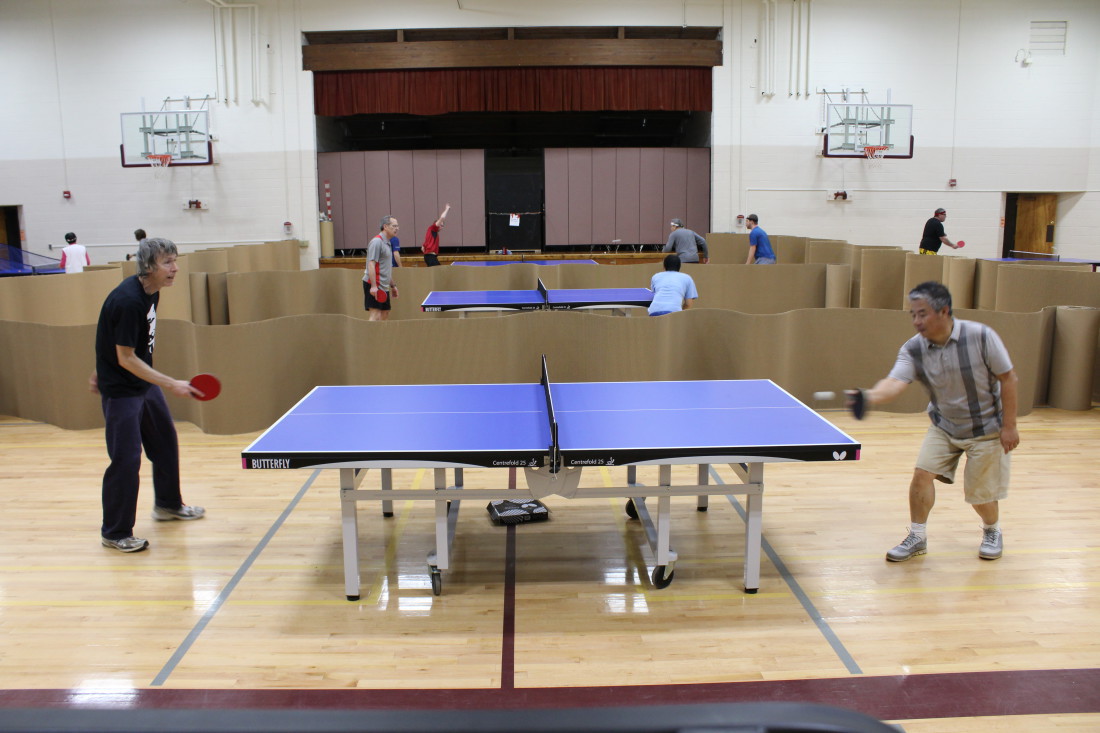
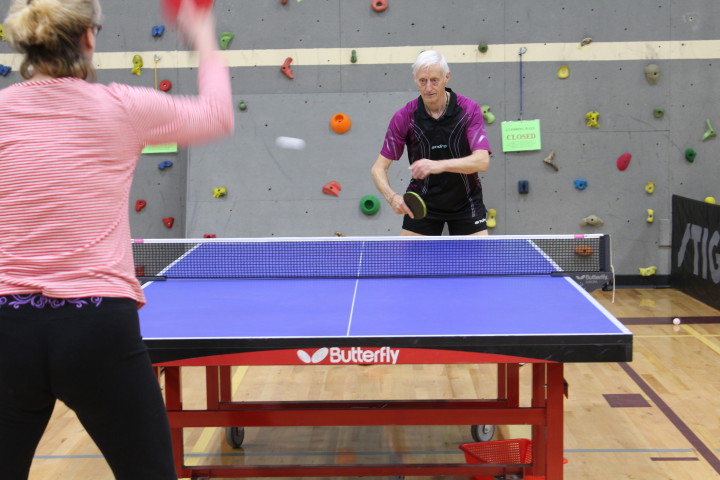
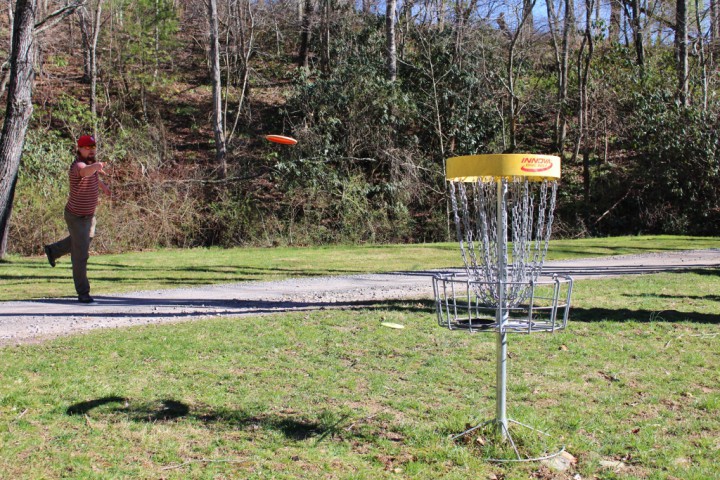
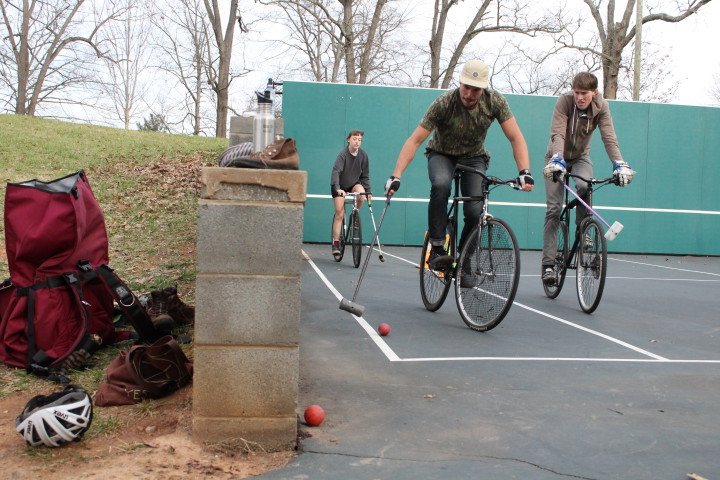
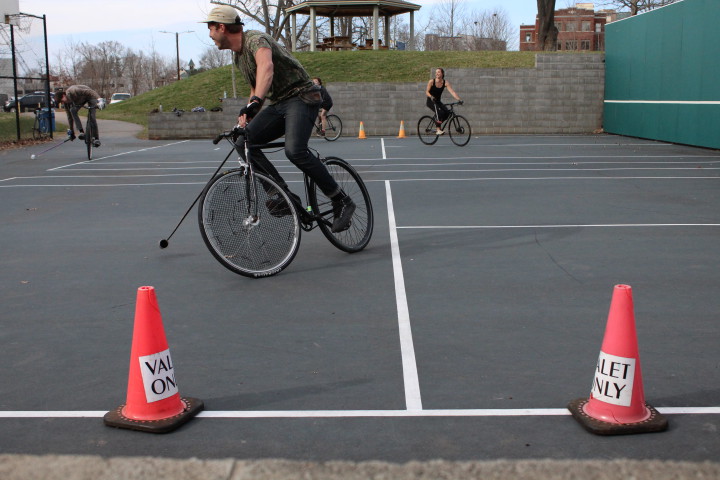
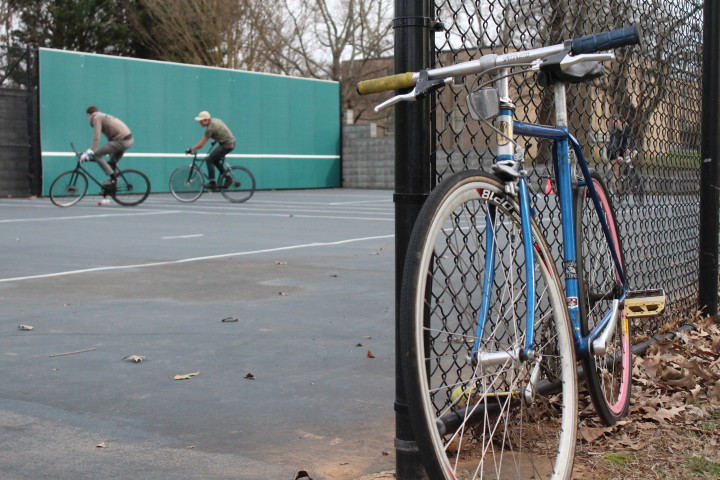
Before you comment
The comments section is here to provide a platform for civil dialogue on the issues we face together as a local community. Xpress is committed to offering this platform for all voices, but when the tone of the discussion gets nasty or strays off topic, we believe many people choose not to participate. Xpress editors are determined to moderate comments to ensure a constructive interchange is maintained. All comments judged not to be in keeping with the spirit of civil discourse will be removed and repeat violators will be banned. See here for our terms of service. Thank you for being part of this effort to promote respectful discussion.